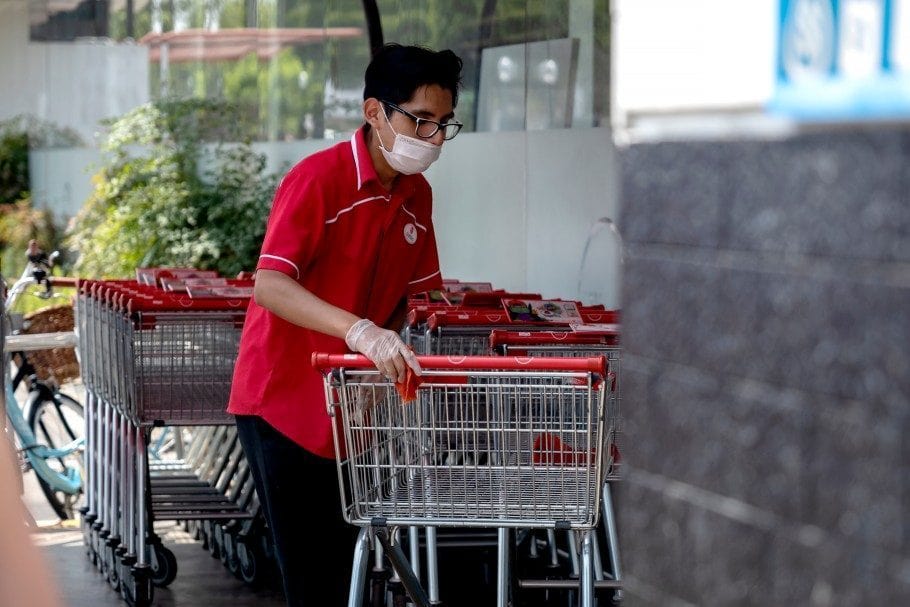Preparing for an FDA Inspection a Necessary Part of Your Food Safety Plan
By Kathy Knutson
Are you worried about the FDA showing up on your doorstep? Even the most diligent companies wonder when the FDA will make an impromptu visit.
This question is often asked by small and medium-sized food businesses. Employees worry that their company is on the FDA list for an inspection. The FDA does not share details of where they will next inspect. Several years ago, the FDA had a secret assignment to inspect ten of the largest dietary supplement manufacturers. The inspectors had no knowledge of their assignment, so much so that they did not know where they were headed until the morning of travel.
With FDA resources stretched to the limit, the FDA plays an important role in public health, and needs to ensure it is maximizing its resources for inspections. Therefore, it focuses on large manufacturers and manufacturers of high-risk foods. While the FDA will never tell us where they are going, with some sleuthing we can figure it out.
How will this new rule affect your business?
Large manufacturers. As a public health agency, the FDA sees large manufacturers as servicing both domestic and international markets and thus prime targets for inspection. The more consumers who eat a commodity, the greater the likelihood of harm to the public. There is no definition of a medium or large business according to the FDA’s guidelines, but a small business is defined as fewer than 500 employees. By default, your company is a large business if it employs more than 500 employees.
FDA contact. Companies with contact from the FDA are wise to respond immediately. Companies will be contacted by the FDA for cause: when there is a consumer complaint, when a market sample has tested positive for a pathogen at a state or FDA lab, or when the FDA discovers a problem with allergen labeling. Contact may be a telephone call, warning letter, or through FDA Form 483 following an inspection. Most companies will quickly react to any type of FDA contact in crisis management style, therefore it is important to be prepared before a crisis or event arises. Any contact by the FDA should be taken as a sign that FDA is on their way to inspect. After the first inspection, be prepared for follow-ups to ensure corrective actions are implemented. .
Recalls and outbreaks. Recalls are initiated either by a company, or by the FDA, when a food could cause biological, chemical or physical illness or injury to a consumer. Foodborne outbreaks are identified and traced by the CDC. If you, your ingredient supplier, or your competitor has announced a recall or is implicated in an outbreak, expect an FDA inspection at your facility. The hazard in your competitor’s product may also be in your product, and is reason enough for an FDA inspection.
Microbiological surveillance sampling. One resource that sheds light on the focus of the FDA’s inspections is the FDA microbiological surveillance sampling program. From October 1 to September 30, the FDA will inspect facilities and test samples of previously listed pathogens. Foodborne pathogens of interest have included viruses (Hepatitis A and Norovirus), Listeria monocytogenes, Salmonella, pathogenic E. coli, and Cyclospora. For the first three years, FDA collected data on sprouts, raw milk cheese, and avocados. In the fiscal years 2020 and 2021, the assignment is to test Romaine lettuce.
FSMA proposed rule for traceability and supplemental materials. There are seven foundational rules of FSMA which are all under enforcement. Recently, the FDA was charged with writing a lab accreditation rule and a food traceability rule. The proposed food traceability rule may be the most valuable resource for understanding what the FDA considers a high-risk food and which facilities could be inspected. See the Food Traceability List to learn if your product is listed. Always prepare for FDA enforcement of proposed rules, as these are considered a guidance document on the FDA’s current thinking. After the FDA receives public comments, the rule may change.
Let’s determine the likelihood of your company having an FDA inspection. If you agree with any of the following statements, your company is more likely to have an inspection.
- Our company is a medium to large business.
- Our company has received FDA contact in the form of a call, warning letter or FDA Form 483.
- Our company or competitor is going through a recall.
- Our company or competitor is part of an outbreak.
- Our company processes, manufactures or handles the commodity in an FDA microbiological surveillance sampling assignment.
- Our company is a manufacturer of a high-risk food listed in the proposed FDA traceability rule.
- I can read the minds of inspectors.
If your company is at risk for an FDA inspection or is responding to FDA action, you would be wise to bring in technical expertise. Handling an FDA inspection can be challenging but is manageable with technical expertise on hand to guide you.
About the Author:
Dr. Kathy Knutson is a Food and Cannabis Project Manager, PCQI Lead Instructor, Independent Contractor (NSF) Consultant and Trainer that helps companies with risk assessment and preparation for a FDA inspections, helping them ensure compliance to established food regulations identified under the Food Safety Modernization Act [email protected].

-
 FeaturedRisk management
The Cost of a Breach: What a Cyberattack Could Mean for Food Safety Recalls
FeaturedRisk management
The Cost of a Breach: What a Cyberattack Could Mean for Food Safety Recalls
-
 FeaturedRisk management
Securing the Food Chain: How ISO/IEC 27001 Strengthens Cybersecurity
FeaturedRisk management
Securing the Food Chain: How ISO/IEC 27001 Strengthens Cybersecurity
-
 FeaturedRisk management
Revolutionizing Food Safety Training: Breaking Out of the “Check-the-Box” Mentality
FeaturedRisk management
Revolutionizing Food Safety Training: Breaking Out of the “Check-the-Box” Mentality
-
 GFSI Standards
GFSI 2025: Building Trust, Tech-Forward Solutions, and Global Unity in Food Safety
GFSI Standards
GFSI 2025: Building Trust, Tech-Forward Solutions, and Global Unity in Food Safety
-
 FeaturedFood Safety
Integrated Pest Management: Strategies to Protect Your Brand’s Reputation
FeaturedFood Safety
Integrated Pest Management: Strategies to Protect Your Brand’s Reputation
-
 FeaturedFood Safety Culture & Training
No Open Door Policy: Challenges That Impact Pest Control in Food Processing Plants
FeaturedFood Safety Culture & Training
No Open Door Policy: Challenges That Impact Pest Control in Food Processing Plants




